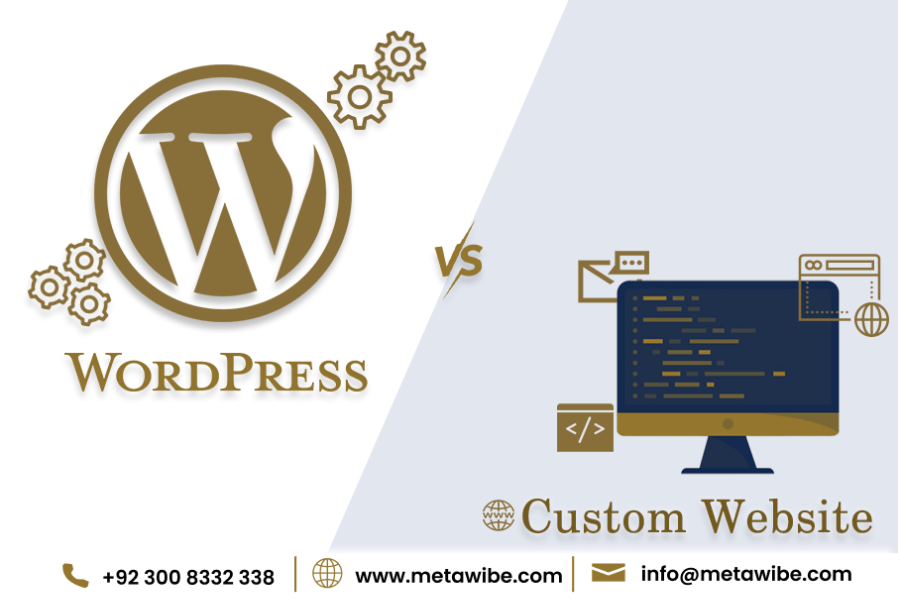Key Features:
- In the fast-paced and highly competitive e-commerce landscape of 2023, the importance of continuous growth cannot be overstated.
- In 2023, two fundamental strategies emerge as cornerstones for e-commerce growth: SEO Services and Social Media Marketing Services. By effectively combining SEO and social media marketing, businesses can unlock their true growth potential.
- Implementing voice search optimization, adapting to mobile-first indexing, incorporating rich snippets and schema markup, and delivering top-notch user experiences are vital SEO best practices to attract organic traffic.
- Instagram’s visual appeal resonates with younger users, TikTok’s short-form videos captivate Gen Z and Millennials, LinkedIn offers B2B e-commerce opportunities, and Facebook’s community-building capabilities foster brand loyalty.
- The seamless integration of SEO and social media marketing can amplify your e-commerce store’s growth potential. By promoting high-quality content through social media, businesses can drive traffic to their websites and boost SEO performance.
- Embracing cutting-edge technologies is essential for staying ahead in 2023’s e-commerce landscape. Utilize artificial intelligence (AI) and machine learning to provide personalized shopping experiences that resonate with individual customer preferences.
- Addressing common e-commerce pitfalls and avoiding mistakes in website design, product descriptions, and mobile optimization is crucial.
- To gauge the effectiveness of their growth strategies, e-commerce entrepreneurs must closely monitor key performance indicators (KPIs).
As we venture into 2023, the e-commerce landscape continues to evolve rapidly, driven by technological advancements, shifting consumer behaviors, and competitive market dynamics. E-commerce has become an integral part of global economies, with online sales accounting for a substantial share of retail transactions. In 2023, the e-commerce sector is expected to witness further growth, presenting both opportunities and challenges for businesses aiming to thrive in the digital realm.
The Significance of Growth for E-Commerce Businesses

For e-commerce businesses, growth is not just an option; it is a necessity for long-term survival and success. In the hyper-competitive digital marketplace Digital marketing agency in Lahore is here to help you out to prevent your site from eventual decline.
On the other hand, sustained growth opens doors to new markets, customer segments, and revenue streams. As consumer demands evolve, adapting and expanding your e-commerce store become crucial to stay relevant and profitable.
Key Strategies: SEO Services and Social Media Marketing Services
To unlock the growth potential of your e-commerce store in 2023, two key strategies stand out among the myriad of marketing approaches: Search Engine Optimization (SEO) Services and Social Media Marketing Services. These strategies offer unique opportunities to enhance brand visibility, attract targeted traffic, and engage with potential customers. Let’s explore their roles and best practices in detail.
Understanding the Role of SEO Services
SEO, the process of optimizing a website to rank higher in search engine results, is instrumental in driving organic traffic to your e-commerce store. In 2023, SEO remains a cornerstone for sustainable growth, as consumers increasingly rely on search engines to discover products and make informed purchasing decisions.
By strategically implementing SEO techniques, e-commerce businesses can improve their online visibility, outrank competitors, and build credibility with search engines and users alike.
Key SEO Trends and Best Practices for 2023

Voice Search Optimization
With the rise of voice assistants and smart devices, optimizing your e-commerce store for voice search queries becomes imperative. Focus on long-tail, conversational keywords and provide concise, informative answers to common questions.
Mobile-First Indexing
As mobile traffic continues to dominate, ensure that your website is mobile-friendly, with fast loading times and responsive design, to align with search engines’ mobile-first indexing.
Rich Snippets and Schema Markup
Utilize structured data and schema markup to enhance search engine understanding of your product information, leading to the display of rich snippets in search results and improved click-through rates.
Site Speed and Performance
Speed is critical for user experience and SEO. Optimize your website’s loading speed and overall performance to reduce bounce rates and improve search rankings.
User Experience and Engagement Metrics
Search engines increasingly prioritize user-centric metrics like dwell time, click-through rates, and bounce rates. Enhance user experience and engagement to boost SEO performance.
How to Choose the Right SEO Service Provider for Your E-Commerce Store?
Selecting a reputable SEO service provider is essential for the success of your e-commerce growth strategy. Look for agencies with a track record of proven results, client testimonials, transparent methodologies, and a comprehensive understanding of e-commerce SEO challenges.
The Power of Social Media for E-Commerce Growth

Social media has transformed how businesses interact with customers, promote products, and build brand loyalty. In 2023, social media’s role in e-commerce growth is stronger than ever, as platforms serve as influential marketplaces and avenues for targeted advertising.
Top Social Media Platforms for 2023 and Their Target Audiences
- Instagram and Visual Marketing: Instagram’s highly visual nature makes it ideal for showcasing products and engaging with a younger, visually-oriented audience.
- TikTok and Short-Form Video Content: Embrace TikTok’s creative and entertaining platform to reach Gen Z and Millennial audiences through engaging short-form videos.
- LinkedIn and B2B E-Commerce: For businesses in the B2B sector, LinkedIn offers a valuable platform for networking, lead generation, and industry-specific content sharing.
- Facebook and Community Building: With its vast user base and sophisticated ad targeting options, Facebook remains a key platform for building communities around your brand.
Crafting a Successful Social Media Marketing Strategy
- Defining Goals and Objectives: Align your social media strategy with measurable goals, whether it’s brand awareness, lead generation, or customer retention.
- Identifying the Target Audience: Understand your target audience’s preferences, interests, and pain points to tailor your social media content and advertising accordingly.
- Content Planning and Creation: Develop engaging and shareable content that resonates with your audience, including images, videos, infographics, and user-generated content.
- Leveraging Influencer Marketing: Collaborate with influencers relevant to your niche to amplify brand reach and credibility among their followers.
- Measuring and Analyzing Performance: Track key metrics such as engagement, conversion rates, and ROI to evaluate the success of your social media efforts and make data-driven improvements.
Discover The Reasons Why Hiring A Professional Graphics Designer Is Better Than Doing It Yourself?
Integrating SEO and Social Media Strategies for E-Commerce Growth

Synergies between SEO and Social Media Marketing
In 2023, combining the power of SEO and social media marketing can create a formidable force to boost your e-commerce store’s growth. These two strategies are interconnected and can reinforce each other to maximize your online presence and visibility.
- Content Promotion
Utilize your social media channels to promote valuable content from your e-commerce website. Sharing blog posts, product guides, and customer testimonials on social platforms can drive traffic to your site and improve SEO signals.
- Link Building
Social media is an excellent platform to attract organic backlinks from influential users and businesses. High-quality backlinks from social media profiles can positively impact your website’s domain authority and search rankings.
- Social Listening
Monitor social media conversations to gain insights into customer preferences, pain points, and trending topics. Use this data to refine your SEO keyword strategy and content creation.
Cross-Channel Promotions and Content Sharing
In 2023, successful e-commerce stores will leverage cross-channel promotions and content sharing to reach broader audiences and engage customers across multiple touchpoints.
- Email Marketing Integration
Combine your social media efforts with email marketing campaigns to reinforce messaging and offer exclusive promotions to your subscribers.
- Social Media Sharing Buttons
Incorporate social media sharing buttons on your e-commerce product pages and blog posts to encourage visitors to share your content with their networks, driving more traffic and potential conversions.
- User-Generated Content (UGC)
Encourage customers to share their experiences with your products on social media, and showcase UGC on your website. This user-generated content can boost social proof and enhance SEO rankings.
How Social Signals Impact SEO Rankings?

Social signals, such as likes, shares, and comments on social media platforms, are becoming increasingly influential in SEO rankings. Search engines consider social signals as indications of content relevance and user engagement, thus impacting your website’s search visibility.
- Increase Social Engagement
Foster active engagement on your social media posts by responding to comments, asking questions, and encouraging interactions. Engaging content is more likely to be shared, leading to greater social signals.
- Brand Mentions
Social media conversations mentioning your brand name, even without a direct link, can contribute to your website’s credibility and improve search rankings.
Using Social Media for Link-Building and Brand Exposure
In 2023, smart e-commerce businesses will use social media strategically to build high-quality links and enhance brand exposure.
- Influencer Partnerships
Collaborate with influencers and industry leaders to expand your brand’s reach and attract new customers. Influencers can provide valuable backlinks and expose your products to their dedicated followers.
- Social Media Advertising
Invest in targeted social media advertising to reach specific demographics and drive traffic to your e-commerce store. Well-optimized ads can lead to conversions and improved SEO performance.
Leveraging Advanced E-Commerce Techniques

Utilizing AI and Machine Learning for Personalized Shopping Experiences
In 2023, AI and machine learning will revolutionize e-commerce by delivering personalized shopping experiences to customers. Implement AI-driven product recommendations, chatbots, and dynamic pricing to enhance customer satisfaction and increase conversions.
The Rise of Augmented Reality (AR) and Virtual Reality (VR) in E-Commerce
AR and VR technologies will redefine the online shopping experience in 2023. Allow customers to virtually try on products, visualize furniture in their homes, or explore travel destinations through AR and VR, making their buying decisions more informed and engaging.
Discover Top 20 Reasons Why You Need to Get a Business Website
Implementing Chatbots for Enhanced Customer Support and Engagement
Chatbots will continue to play a crucial role in 2023, providing instant customer support, answering queries, and guiding visitors through the purchase process. AI-powered chatbots can increase efficiency, improve customer satisfaction, and free up resources for other critical tasks.
Harnessing the Potential of Social Commerce in 2023
Social commerce, the integration of e-commerce directly into social media platforms, will gain momentum in 2023. Explore features like shoppable posts and in-app checkout options to convert social media users into customers seamlessly.
Navigating Challenges and Mitigating Risks

Addressing Common E-Commerce Pitfalls and Mistakes
Despite the growth potential, e-commerce businesses often encounter various challenges that can hinder their progress. Some common pitfalls and mistakes include:
- Poor User Experience
A clunky website design, confusing navigation, or slow loading times can drive potential customers away, resulting in lost sales and reduced brand loyalty.
- Inadequate Product Descriptions
Insufficient or inaccurate product descriptions can lead to disappointed customers and increased product returns, negatively impacting your store’s reputation.
- Lack of Mobile Optimization
With a significant portion of online traffic coming from mobile devices, failing to optimize your e-commerce store for mobile users can lead to missed opportunities.
- Overlooking SEO
Neglecting SEO best practices can hamper your website’s visibility in search engines, making it difficult for potential customers to find your products.
Dealing with Algorithm Updates and Social Media Policy Changes
In 2023, e-commerce businesses will need to stay vigilant about algorithm updates from search engines and social media platforms. These updates can significantly impact your online visibility and reach. To mitigate the risks:
- Stay Informed
Keep yourself updated on the latest algorithm changes and policy updates from major platforms like Google, Facebook, and Instagram.
- Diversify Traffic Sources
Relying solely on one traffic source can be risky. Diversify your marketing efforts to include organic search, social media, email marketing, and other channels.
- Focus on Quality Content
Algorithm updates often prioritize high-quality, relevant, and engaging content. Create valuable content that resonates with your target audience to maintain a strong online presence.
Measuring Success and Continuous Improvement

Key Performance Indicators (KPIs) for E-Commerce Growth
To gauge the effectiveness of your e-commerce efforts, monitor key performance indicators (KPIs) such as:
- Measure the percentage of website visitors who complete a desired action, such as making a purchase or signing up for a newsletter.
- Calculate the projected revenue a customer will generate over their entire relationship with your store.
- Determine the average amount spent by customers per transaction.
- Track the percentage of customers who return to make repeat purchases.
The Importance of Data Analytics in Decision-Making
Data analytics plays a critical role in guiding strategic decisions for your e-commerce store. Leverage analytics tools to gain valuable insights into customer behavior, website performance, and marketing effectiveness. Data-driven decision-making ensures that you can adapt your strategies to meet the ever-changing needs of your customers.
A/B Testing and Iterative Improvements
To optimize your e-commerce performance, employ A/B testing methodologies. Test different elements of your website, such as product pages, CTAs, and checkout processes, to identify which variations yield better results. Continuously iterate and refine your strategies based on test outcomes to achieve incremental improvements over time.
By proactively addressing challenges, staying adaptable, and continually measuring and optimizing performance, your e-commerce store will be better equipped to thrive in the dynamic landscape of 2023 and beyond.
Conclusion
As we venture into the dynamic landscape of e-commerce in 2023, it is evident that growth is not just a goal but a necessity for businesses to thrive. With consumers’ preferences and behaviors rapidly evolving, staying ahead requires embracing innovative strategies and adapting to the ever-changing digital environment.
In this journey of e-commerce growth, two key strategies stand out as vital pillars: Search Engine Optimization (SEO) Services and Social Media Marketing Services. By leveraging the power of SEO, businesses can enhance their online visibility, attract targeted traffic, and build credibility with both search engines and users. Concurrently, tapping into the potential of social media marketing allows e-commerce stores to engage with a vast audience, amplify brand reach, and foster customer loyalty.
May your e-commerce store thrive, adapt, and lead the way in the exciting era of e-commerce growth. Happy selling!





